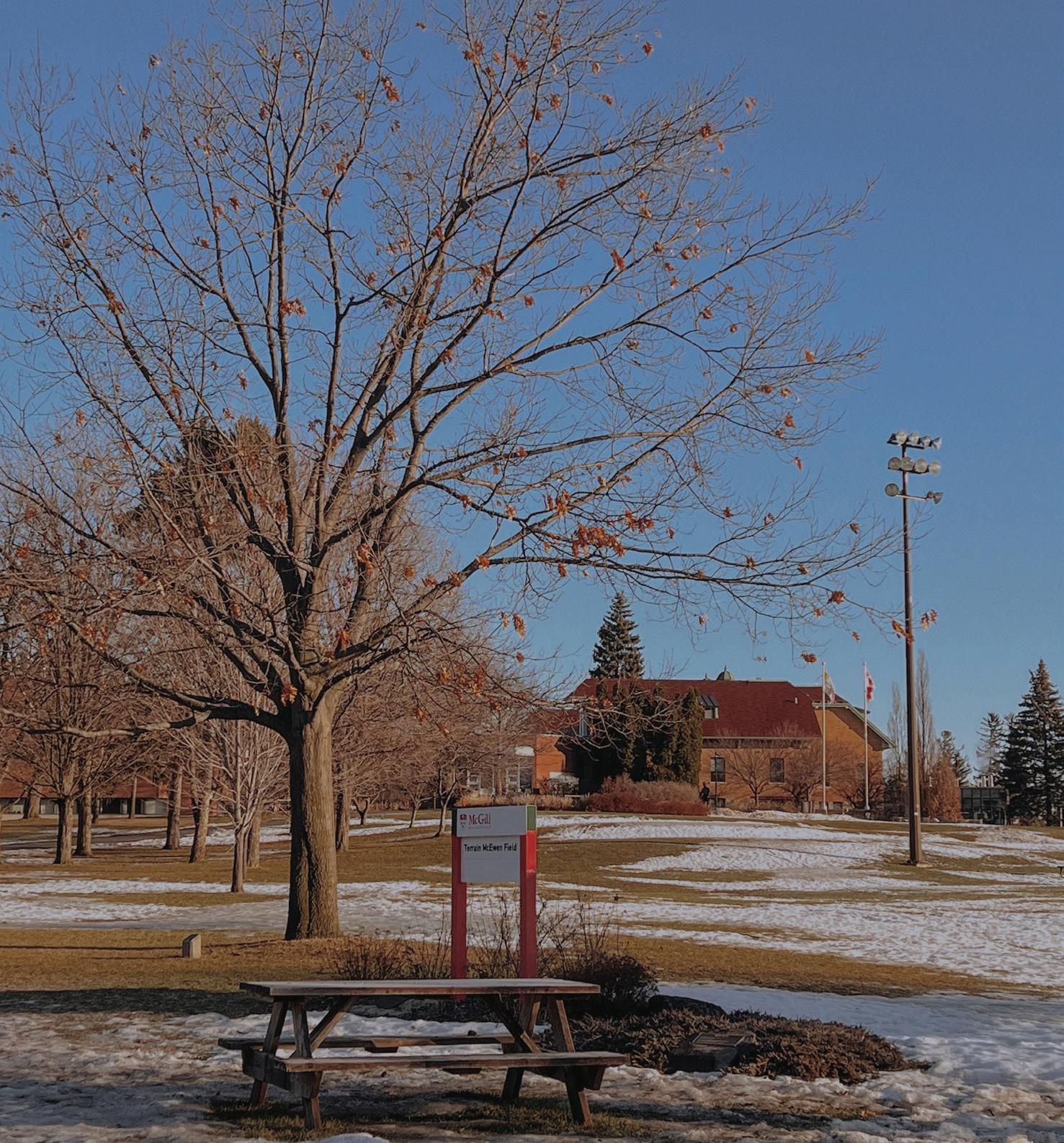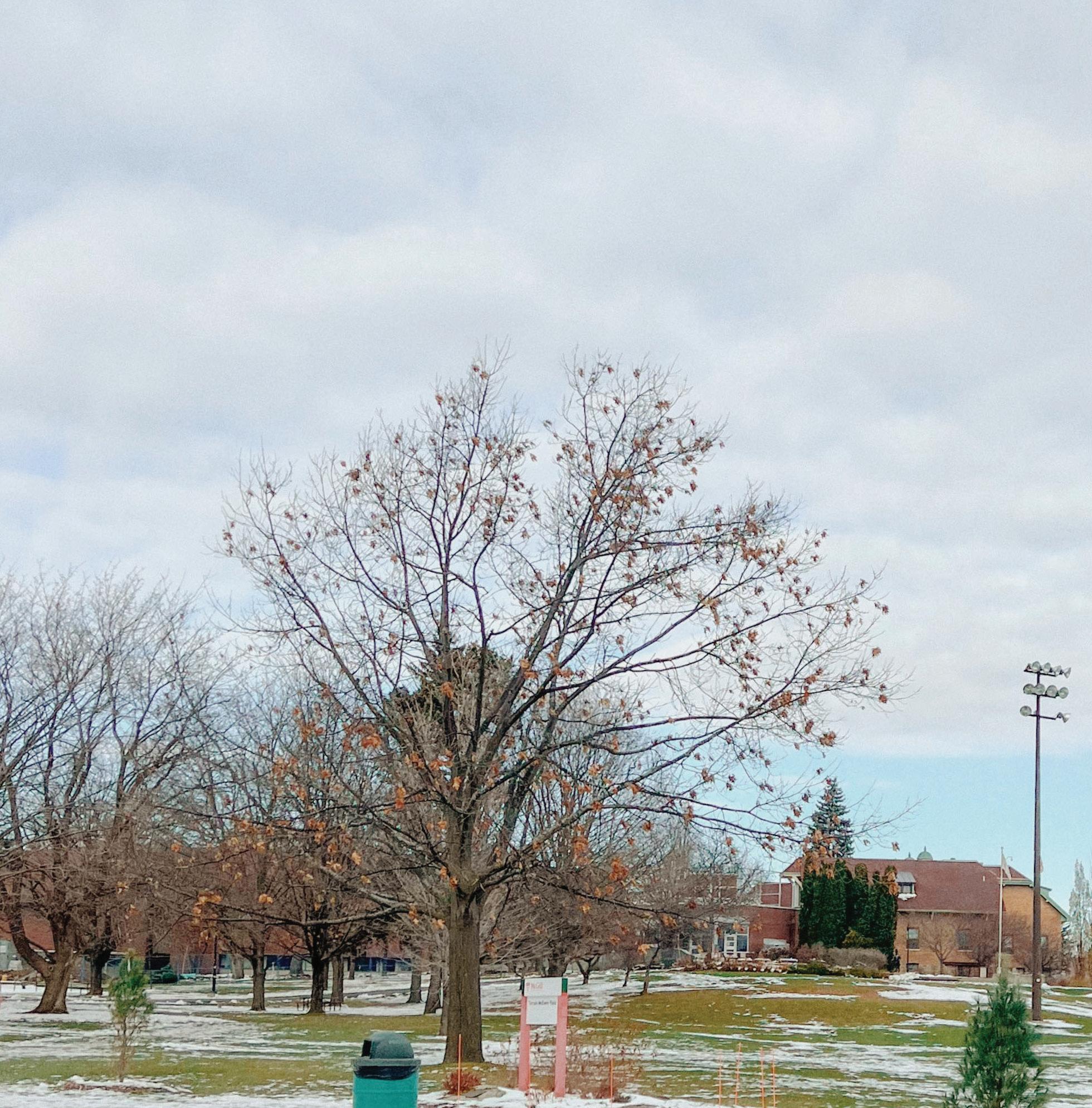
4 minute read
Students suffer from “food desert” at Macdonald campus
Recent closure has left
Shani Laskin Staff Writer
Advertisement
Continued from page 1.
Sainte-Anne-de-Bellevue with no grocery stores
The bus service, provided by the administration, ran one bus before Marché Richelieu’s closure but was expanded to run two in late January to meet students’ increased need to commute for groceries. Every Monday night at 6:30 p.m., two buses shuttle students from Laird Hall to a Walmart about 10 kilometres away in Vaudreuil. The bus then returns students to campus at 8:30 p.m. The service is available to all students, including graduate students, but is first-come first-serve. According to McGill media relations officer Frédérique Mazerolle, the plaza in Vaudreuil also includes a Metro, Dollarama, and Bulk Barn that students can access during their two hours.
The Macdonald Campus Student Society (MCSS) has been working to adjust existing services by liaising with the McGill administration. In an interview with The McGill Tribune , MCSS vicepresident (VP) External Zell Song said that MCSS is creating surveys to gather student opinions. Using the information provided in the survey, MCSS hopes to create a report to present to the Student Housing and Hospitality Services (SHHS) and the administration to adjust the existing services to better fit student food needs.
“For students who live in SainteAnne, it’s kind of hard for them to be dropped off at school and then have to walk back to the place where they live,” Song said. “So [we can see] if it’s possible to stop at a bus stop so they can walk less [....] If there’s a lot of students who think another time instead of Monday evening works better, based on the majority of responses, the housing office [might be] willing to change the time.”
MCSS VP Equity Affairs, Sara Kosumi, told the Tribune that while the bus service has been helpful, there are still issues surrounding access that McGill needs to address.

“It’s great that they are taking action and providing another grocery bus, but I wish they could reflect students’ voices more,” Kosumi said. “I hear that students cannot take the shuttle because of the time it would take—students would have to wait on the returning bus for at most one and a half hours before the bus leaves the store, no matter how fast they shop [....] Maybe McGill wanted to act quickly, and we appreciate that. However, I believe now is the time to hear students’ voices and adjust.”
As a student living in the Macdonald campus residences, Kosumi shared that with the limited space in residence kitchens, getting food for the entire week with the bus service is not feasible.
“I used to use Marché Richelieu to buy things in the middle of the week when there was no shuttle bus,” Kosumi said. “With the limited space in the shared fridge in residence, getting [the] food I needed for a week from a grocery shuttle wasn’t feasible [....] However, now that Marché Richelieu has closed down, I rely less on fresh vegetables or meat and live off plain rice or cereals.”
According to Jamie*, the closures have only exacerbated an existing problem, not created a new one. Using the @maccornhub meme page on Instagram, which they run, Jamie has been able to gauge the attitudes of Macdonald campus students through a Google Form linked in their bio.
“Mac campus has been a food desert for as long as it’s been around,” Jamie told the Tribune . “I think many students are kind of feeling cheated of their university experience at this point. Firstly with COVID, and now with the asbestos closures. It’s also really hard for student societies to encourage people to come to campus.”
Jamie also pointed out that some Macdonald campus students felt neglected. As the Macdonald campus is over 30 minutes away from downtown and has a significantly smaller student population, some students feel that the McGill administration fails to provide adequate support to its students.
“As a Mac campus student myself, I’m honestly not surprised with how things are going,” Jamie said. “It doesn’t take long as a Mac student to realize that McGill admin doesn’t really care for us [....] Students on the campus already have to make up for so much that is lacking since the McGill community kind of ignores us—I wouldn’t blame them, we are like 35 minutes away, it just sucks that they wouldn’t at least try a little harder.”
Zahur Ashrafuzzaman, U3 Arts and Science, told the Tribune that the problem of food insecurity at Macdonald campus is compounded by the fact that the MCSS has no voting power on the Board of Governors, unlike the Students’ Society of McGill University (SSMU).
“The issue with food accessibility has deep roots at McGill, reaching up to the Board of Governors who refuse to allocate sufficient funding to subsidize food services or student-run food security-focused groups on campus,” Ashrafuzzaman said. “It becomes much more difficult for Mac students to advocate for McGill to take action to address this food insecurity when they don’t have any voting power on the Board.”
While the options are more limited than before, the MCSS and other student groups are working to provide accessible and healthy food for students. With Happy Belly, an organization that provides free vegan meals every Thursday and Buy your Own Bulk, which buys food in bulk to sell at affordable prices to students, those outside the McGill administration are trying to mitigate the issue. In addition, the Macdonald campus’ Horticulture Research Centre grows produce year-round. The center has provided over 40,000 kilograms of produce to McGill Food and Dining Services in the past three years. In July through November, the produce is also sold to students and community members at the Mac Market.
MCSS also runs The Ceilidh, the only on-campus restaurant currently open to students while three buildings remain closed. The Ceilidh is open from 8:30 a.m. to 3 p.m., after which it operates as a bar, on weekdays. To Jamie, The Ceilidh is essential.
“This has honestly been a saving grace, especially since the restaurant is located in one of the buildings that is not closed,” Jamie said. “I think the major issue is if you are on campus not during peak times [...] if you’re on campus for any 6 p.m. classes or whatnot, there are no options available for you.”
*Jamie’s name has been changed to preserve their anonymity.








